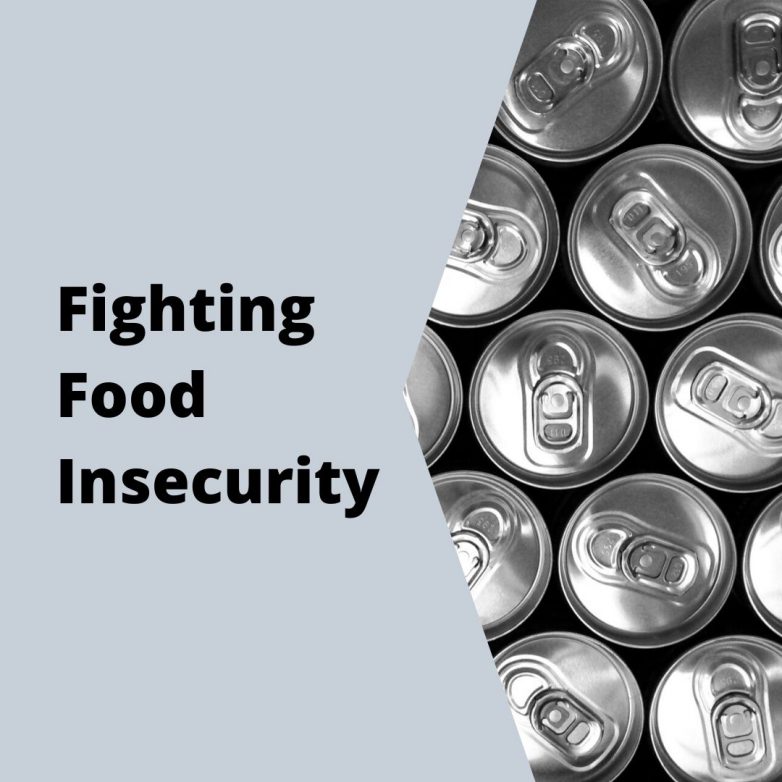[vc_row][vc_column][vc_column_text]
The ACC community sheds light on the silent issue of food insecurity amongst its students.
Story and video by: Marissa Greene
How can a house stand tall when it is built on sand? Similarly, how can a student achieve success when lacking the physiological needs such as food, shelter, and sleep? According to the Hope Center for College, Community, and Justice, 48% of the 86 thousand community college students who responded to the center’s survey face food insecurity.
For 22 year old ACC student, Damienn Alcala, this is more than just a statistic; it’s a reality. Making the choice between paying for books, tuition, and transportation, housing can often appear more vital for students than a month’s worth of groceries.
“College is so expensive, and it’s an investment,” Alcala said. “With the average college debt being so high, where does that leave money for students to buy their own groceries?”
The U.S. Department of Agriculture defines food insecurity as a lack of consistent access to enough food for an active and healthy life. When a student is food insecure, a number of other challenges can also cause an impact on their life.
“When students are food insecure it’s like a ripple effect. If you’re hungry then how can you study?” says Student Life Coordinator, Jennifer Flowers. “It also has an effect on graduation rate too. So if you are missing that basic need and cannot go to class, then how can you graduate?” Flowers says.
Students are able to utilize the food pantries in the student life lounge of every campus. The food pantries provide students with canned goods and other non-perishable items without a dollar sign associated with it.
The food pantry’s purpose is to help students during times of immediate hunger in order to better themselves when on campus. As an additional resource, student life partners up with Central Texas Food Bank on the fourth Friday of every month from 9 a.m. to 11 a.m. at the Riverside campus to supply groceries to students. On that day, students are able to walk into the student life lounge at the Riverside Campus and receive a ticket. That ticket will tell them when to come out into the parking lot, where they are greeted by volunteers, reusable bags, and a line of tables with an abundance of food choices.
As the student walks through the line, they receive two reusable bags for their items and can pick anywhere from chicken, canned goods, fresh produce, and even bread. After their selections, these students are able to receive assistance carrying these groceries back to their car or the bus stop.
Earlier this year, Sara Goldrick-Rab, the founder of the Hope Center for College Community and Justice spoke with ACC staff and faculty about how obstacles like food insecurity plays a role within the college. According to their most recent survey, 42% of students just at ACC alone are food insecure. Which comes at second place following home insecurity, which is nearly over 50% of Riverbats.
“We don’t do things unless we are personally affected by them,” Goldrick-Rab says. “Having a student program that students don’t know about doesn’t make it effective”
Alcala believes that in order to get more students involved, both students and faculty must first get the conversation started about food insecurity. During the first week of each semester, Student Life organizes a welcome week where students can orient themselves within Student Life and become more aware of the resources available to them.
“When talking to students even more, when they use the food pantry, when we wheel in the carts of food at the food distribution, the students are thankful that they don’t have to worry about groceries for that month,” Flowers said.
With all that the food pantry and distribution has to offer, Flowers recognizes how having these conversations with each other also creates a bond between students in the community.
“This is when conversations start to open up about their own struggles,” Flowers said. “Every single staff member in our department is all about student success.”
Flowers hopes that talking about food insecurity encourages all departments to want to get to know their students more beyond the ACCeID.
For students like Alcala, they don’t let the statistics get in the way of striving for not only a better education, but also for the betterment of the ACC community.
“For someone who is like me, just know that it’s okay, that is why we are here at ACC,” Alcala said. “To come together and say, ‘Hey, we may not have that much money, but we have each other to help out.’ That’s what I feel is the real message of ACC.”
If you are someone you know could benefit from the Student Life food pantry or monthly food distribution, visit your campus’ Student Life lounge to learn more, or visit austincc.edu/[email protected]
[/vc_column_text][/vc_column][/vc_row][vc_row][vc_column][vc_video link=”https://www.youtube.com/watch?v=kA-rGnAmzdc” align=”center”][/vc_column][/vc_row]


